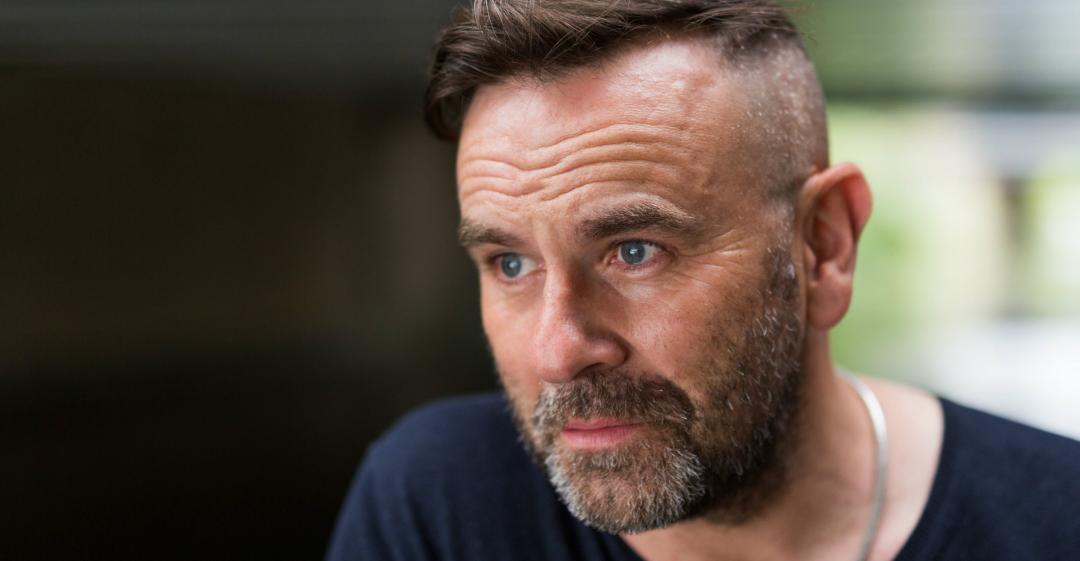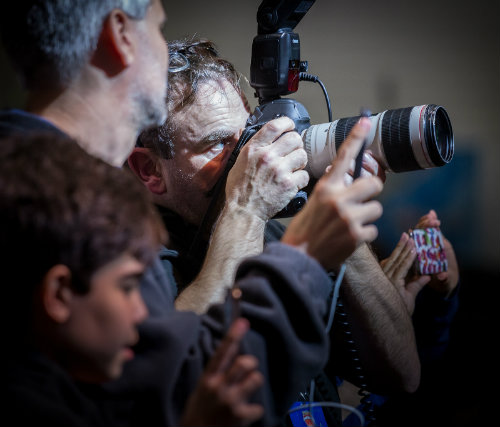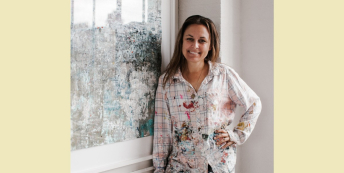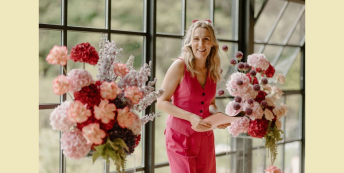“I was running out of steam to keep plugging away at the same old problems.”

What work were you doing previously?
I was an interim director working on government technology projects.
What are you doing now?
I'm an event and portrait photographer.
How did you feel in your work before you decided to make the change?
It wasn't without some great moments – namely helping to make decisions that might improve services for millions of people – but I was running out of steam to keep plugging away at the same old problems.
Why did you change?
The general election about eight years ago was a big trigger.
Suddenly, lots changed in my working world. New ministers of a different political flavour appeared, and lots of projects were cancelled.
I was also coming to terms with turning 40 and wanting to create a business that I could genuinely call my own.
When was the moment you decided to make the change?
I don't think there was a single moment.
One world merged into the other, over a period of a couple of years. I started being asked to take on more and more photography assignments, and was lucky enough to land some part-time government contracts that could fit alongside that. I was very, very lucky, in hindsight.
It wasn't until I'd done dozens of photo jobs that I even thought of myself as a photographer. I'd had no background in it, not even as a hobby, but started from nothing and tried to get a little better each day.
How did you choose your new career?
I didn't. It chose me.
All I did was try to take interesting photos, quickly, and with a smile on my face.
It turned out that a lot of people were looking for that as a service, so the initial stages were a smooth progression from "Could you come and take some snaps for us?" to "We'd like to hire a professional – what do you charge?"
Are you happy with the change?
I couldn't be happier.
If you'd told me ten years ago what I'd be doing for a living today, I wouldn't have believed you for a second.
What do you miss and what don't you miss?
I miss the fundamental fact that the old work really, really mattered. To lots of people.
A photo can also touch a lot of people, but not quite with the same weight.
I don't miss the lack of closure. Projects were rarely completed, just made a little less worse over time. I've never had to go back to the Board six months after a shoot and explain why the photos look like they do. They're completed, and delivered, and paid for, and that's a great feeling.
How did you go about making the shift?
I sensed the shift happening, and tried to adapt to it, rather than doing anything too active to steer my course.
After a few shoots, I realised I had some rough edges and gaps in what I knew, so I wrote them down, and hired a tutor to help fill them.
Other than that, I've just tried to do a bit of learning and development every day, and I suspect I always will.
What didn't go well? What wrong turns did you take?
There was a period of a few months where I made zero income.
Absolutely nothing.
I had to draw on every bit of savings I had, and came within a few hundred quid of having to give it all up and get a 'proper job'.
How did you handle your finances to make your shift possible?
I'd built up some savings from my years in government tech, but I did have to cut down on spending anything.
It took me five years, but eventually I started earning in the new career what I'd been making before.
What was the most difficult thing about changing?
I think the hardest part is definitely self-doubt.
If you're working for yourself, how do you really know you're doing 'enough', or doing the right things?
As a result, I've pushed myself very, very hard in terms of long hours, and relentless business building, to get things rolling.
What help did you get? 
I did everything with the power of the networks I'd already built up.
One thing the whole transition taught me was just how good your network will be to you, even if you move to do something completely different.
What resources would you recommend to others?
Interestingly, I never looked at any of the 'formal' resources offered by government, or trade associations.
What I did find invaluable was joining some forums for professionals in my industry – giving me the opportunity to learn, share insights, and let off steam when required.
What have you learnt in the process?
Trust is a very portable thing.
I've found that if you're trusted to do one thing, people will quite readily trust you to do something else.
I've also learnt how important it is to build in your own measures of success, otherwise you'll flail around never thinking you're good enough.
And I've learnt to listen to the voice of change whispering at me. Recently I've done a lot of video production, and that's going to be an interesting direction in which to take the business from here.
What would you advise others to do in the same situation?
Have faith in your skill, but never forget you still need to add a little bit to it every single day if you're going to make it.
To find out more about Paul's services, visit www.paulclarke.com.
What lessons could you take from Paul's story to use in your own career change? Let us know in the comments below.



